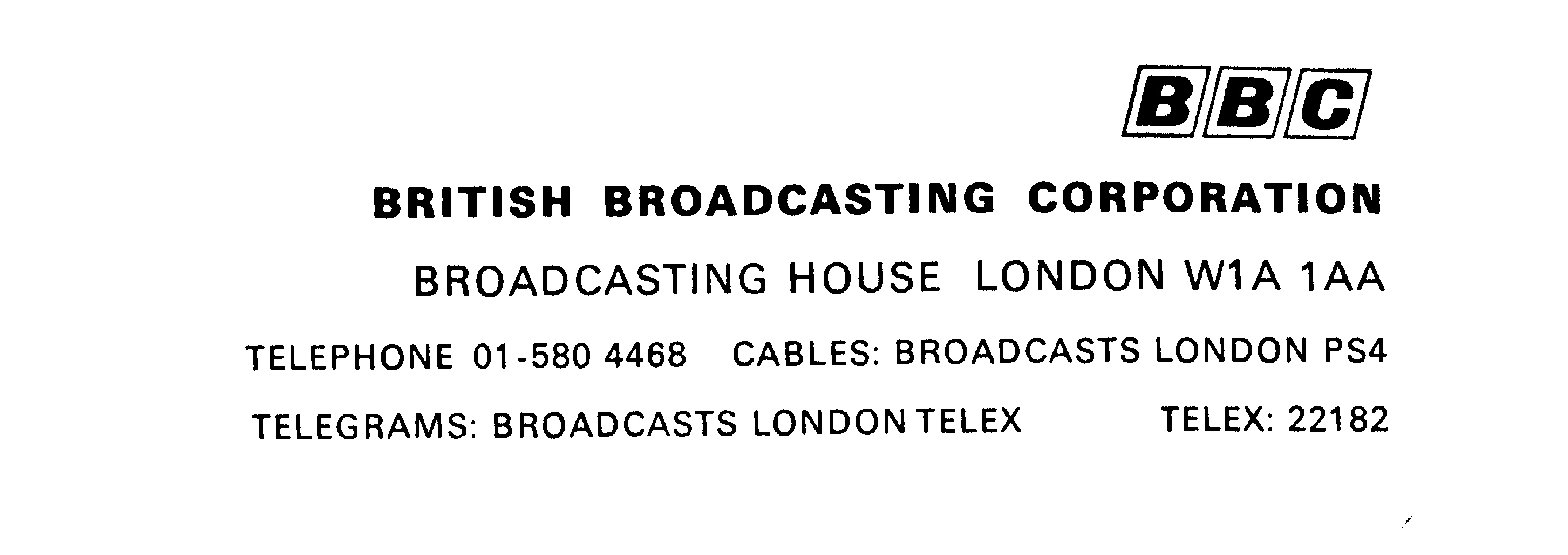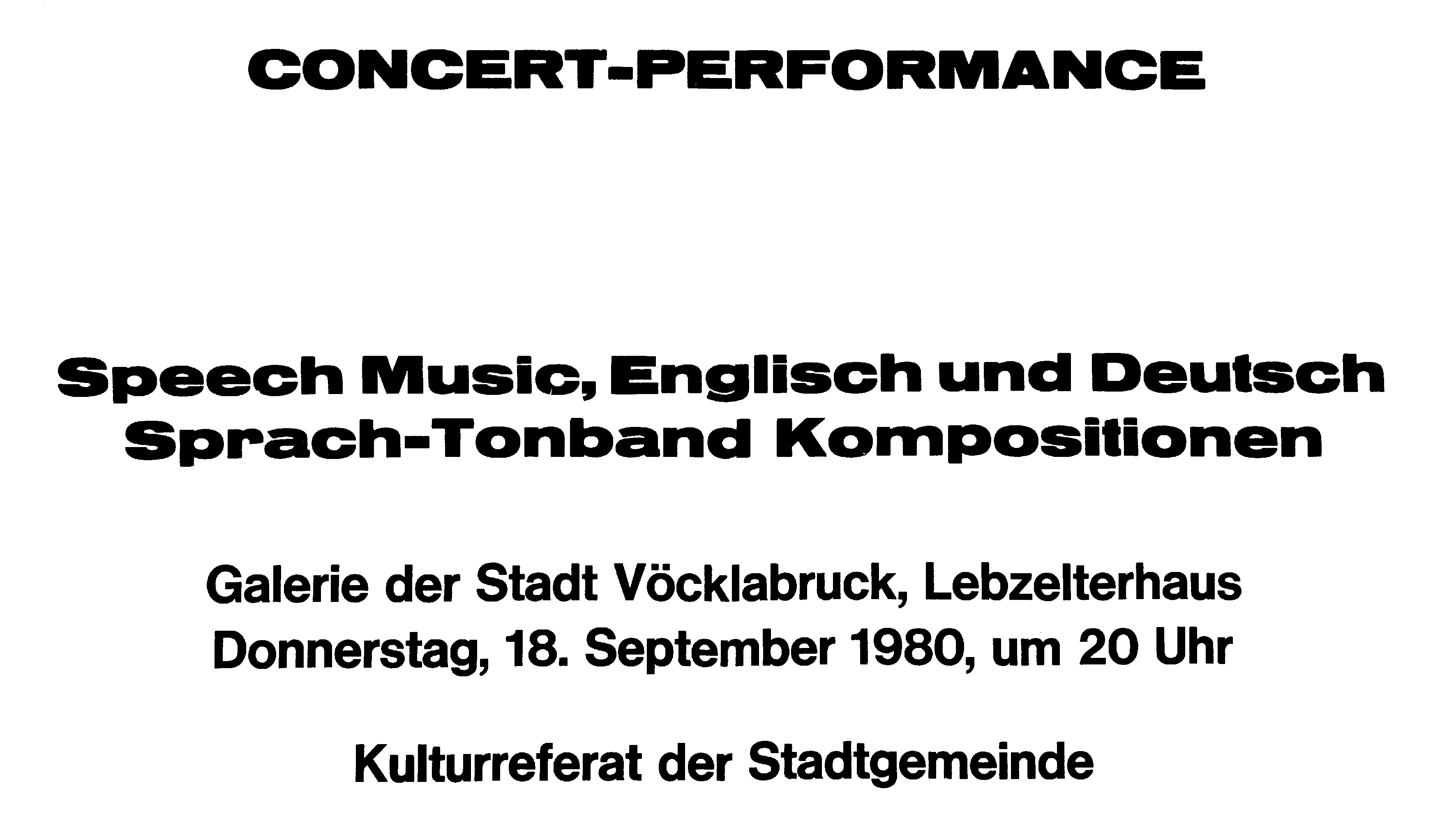electroacoustic works
In the centre of the Atrium space at the Kunstverein are featured a selection of Greenham’s stereo electroacoustic sound works, rendered here in a 4-speaker array, a spatial technique that Greenham often used when monitoring her work in performance. Circulation (extended version) is a much longer version of a short closing passage from Greenham’s Circulation (1975–76). The original Circulation — assembled by Greenham in her home studio — is important in conveying her exploration into early digital sampling techniques (long before commercial samplers were available). Recordings of her voice — sent by post on magnetic tape to Wales — were sampled, looped, and repitched on a PDP-8 computer at University College in Cardiff using software created by programmer Marcus West. The results were then returned to Greenham by post — the ‘file transfer’ system of its day. You can hear this material on Circulation (extended version) within the rapid iterative vocal textures that come and go throughout. The original Circulation used a French-language version of Greenham’s poem Traffic as the source material. Circulation was also included in the Bourges International Festival of Experimental Music in 1978.
Seascape (1977/79) is a piece built around the sounds of marine mammals, plastic string, water, chinese gong, mandolin, a metal ball, and electric guitar. An extraordinary foray into imaginary bioacoustic landscapes, it can now be seen as a prescient outlier for what many contemporary composers are now concerned with (Greenham wrote a number of letters to British parliamentary figures about pollution in the 1980s). The works Ona and Tops were both created in 1973 and feature texts by other poets: Ona is based on the poem ‘Laska’ by experimental Czech poets (and life partners) Josef Hiršal and Bohumila Grögerová, whilst Tops (1973) is a poem by Ronald Draper, performed by Lily Greenham with electronics by Paddy Kingsland. RRR and Sino (circa 1973) remain something of a mystery, with little or no contextual material available, although Sino features electronics by Paddy Kingsland and was likely composed in sessions at the BBC Radiophonic Workshop.


